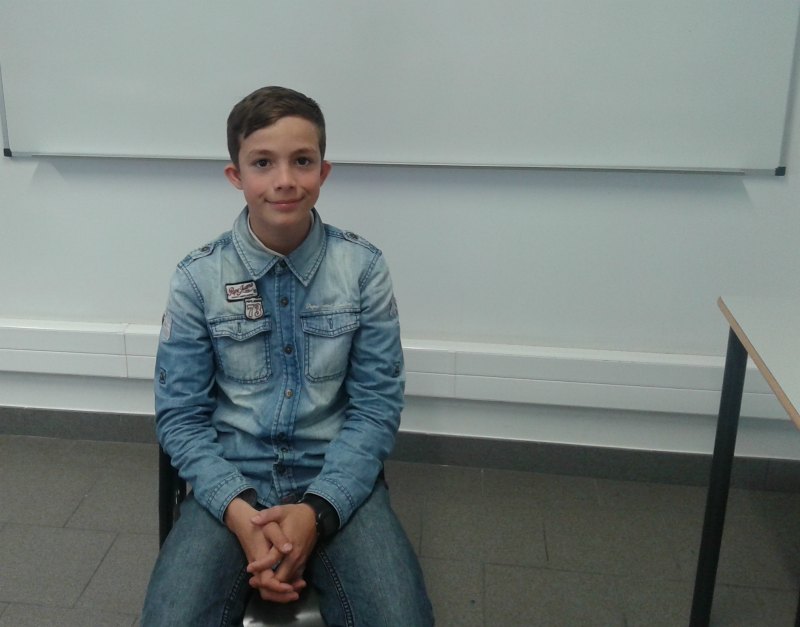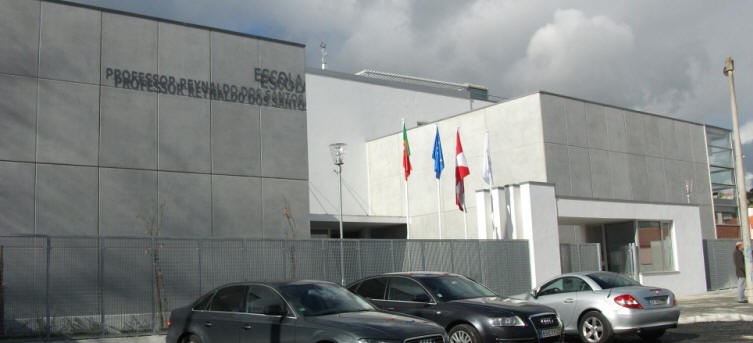When students in a school in Lisbon, Portugal saw their schoolmates struggling, they took matters into their own hands, offering the support needed to raise their confidence and grades. We spoke to two schoolgirls, both named Ana, who demonstrate how giving students the space to make human rights real in their own schools, improves conditions for everyone.

When Ana Nunes, and her friend Ana Moura, both 17 years old, heard that some 12 year-old students in their school could no longer attend an optional after-school study class because of bad behaviour and lack of commitment, they came up with an idea.
“Some students were facing complicated issues, at home and in school, which affected their school performance. So we created an open space for them to talk about themselves and discuss issues such as bullying, discrimination, and racism,” says Ana Nunes.
What was at first seen as challenging: wondering how to motivate students to take extra classes in their free time, and involve and motivate them, led to a very successful approach. Every Wednesday afternoon, for one hour, Ana and Ana organised a students meet-up to talk about whatever they felt like, whether it was directly related to school work or not. This proved to be very effective.
“The pupils’ grades improved and so did their overall behaviour! They were reluctant at first but with time they trusted us more and started trusting themselves!” says Ana Nunes.
The key to this success? The two girls offered a place free of judgment and adult authority, a place where the students felt respected and listened to, without the pressure of the school framework. “No one from the school administration ever came to watch,” explains Ana Nunes, “the presence of someone else in the room would have troubled the trust we implemented.”
Juliana Santos, a 12 year-old student who attended the sessions, spoke of her need for a safe learning space. “I like the experience because we can talk about our problems without feeling ashamed, we are comfortable talking about serious things,” she said, “We play games aimed to make us think and debate. We’ve learned to listen to each other and respect the opinions of others.”

As time went by these weekly meetings became essential to the students attending, “In the beginning, the students saw us as strangers and were uncomfortable talking about why they were there,” says Ana, “but when they realised we really wanted to listen, they opened up and our sessions became important for them.” Students said they missed it when, for some reason, a session was cancelled, and some even said they came to school just to attend the class.
François was one of the first to join the group: “The older students are more understanding, they understand the way we think as teenagers. They understand our jokes better, as well as our difficulties. We are more comfortable with older students, but still we respect them,” he says.
With this initiative, Ana Nunes and Ana Moura became the first people to implement peer education in the school. Initially five pupils joined the class and two more came along later. What came so natural to them, helping young students in difficulty is a founding pillar of Amnesty’s Human Rights Friendly Schools project. According to a teacher from the school, Marília Santos, this initiative is a result of empowerment that resonates with Amnesty’s values: “Amnesty’s approach is about making changes to improve the school environment and those two girls did exactly that,” she said.
The Professor Reynaldo dos Santos School has been a member of the Human Rights Friendly Schools project since 2013. The project aims to empower young people and promote the active participation of all members of the school community in integrating human rights values and principles into all areas of school life.
Since this spontaneous peer education initiative, Amnesty Portugal has deepened its work in the school. “Raising awareness about defending human rights was always a concern to the school. So the work developed by Amnesty served to reinforce this,” says Ana. This year Amnesty Portugal is training multipliers on bullying and discrimination issues to spread knowledge and skills to the other students and teachers in the school.


